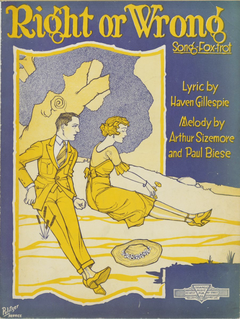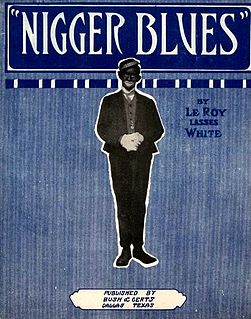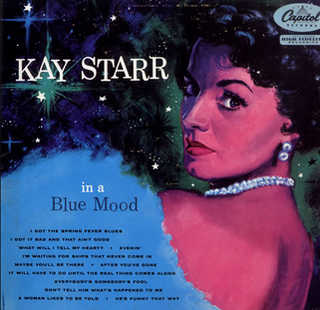
This article is about music-related events in 1871.
The 31st Annual Grammy Awards were held on February 22, 1989, at Shrine Auditorium, Los Angeles. They recognized accomplishments by musicians from the previous year.

"Jingle Bells" is one of the best-known and most commonly sung American songs in the world. It was written by James Lord Pierpont (1822–1893) and published under the title "The One Horse Open Sleigh" in the autumn of 1857. It has been claimed that it was originally written to be sung by a Sunday school choir for Thanksgiving, or as a drinking song. Although it has no original connection to Christmas, it became associated with Christmas music and the holiday season in the 1860s and 1870s, and it was featured in a variety of parlor song and college anthologies in the 1880s. It was first recorded in 1889 on an Edison cylinder; this recording, believed to be the first Christmas record, is lost, but an 1898 recording also from Edison Records survives.
Song structure is the arrangement of a song, and is a part of the songwriting process. It is typically sectional, which uses repeating forms in songs. Common forms include bar form, 32-bar form, verse–chorus form, ternary form, strophic form, and the 12-bar blues. Popular music songs traditionally use the same music for each verse or stanza of lyrics. Pop and traditional forms can be used even with songs that have structural differences in melodies. The most common format in modern popular music is introduction (intro), verse, pre-chorus, chorus, verse, pre-chorus, chorus, bridge, chorus and outro. In rock music styles, notably heavy metal music, there is usually one or more guitar solos in the song, often found after the middle chorus part. In pop music, there may be a guitar solo, or a solo may be performed by a synthesizer player or sax player.

"You Got It " is a 1988 single from New Kids on the Block. The lead vocals were sung by Jordan Knight and Donnie Wahlberg. The second single from the group's second album Hangin' Tough, it peaked at number 3 on the Billboard Hot 100 Singles Chart in early 1989, while topping the UK charts in November 1989. On the album, it was simply listed as "The Right Stuff"; the change to the single was probably to avoid confusion with Vanessa Williams' debut hit "The Right Stuff", which charted earlier that year. A Spanish version of the song was made ("Autentica") and peaked at number 11 in Spain.

"Sweet Home Chicago" is a blues standard first recorded by Robert Johnson in 1936. Although he is often credited as the songwriter, several songs have been identified as precedents. The song has become a popular anthem for the city of Chicago despite ambiguity in Johnson's original lyrics. Numerous artists have interpreted the song in a variety of styles.

"I've Got a Pain in My Sawdust " was a popular song. The music was composed by Herman Avery Wade, and the lyrics were written by Henry Edward Warner. The song was originally copyrighted in 1909 by Joseph W. Stern & Co. with these rights bought for publication in the United States by Edward B. Marks Music Co. of New York in 1920. The sheet music lists the performance medium as piano, voice, and chords.

"There's a Long, Long Trail" is a popular song of World War I. The lyrics were by Stoddard King (1889–1933) and the music by Alonzo "Zo" Elliott, both seniors at Yale. It was published in London in 1914, but a December, 1913 copyright for the music is claimed by Zo Elliott.

"Dallas Blues", written by Hart Wand, is an early blues song, first published in 1912. It has been called the first true blues tune ever published. However, two other 12-bar blues had been published earlier: Anthony Maggio's "I Got the Blues" in 1908 and "Oh, You Beautiful Doll", a Tin Pan Alley song whose first verse is twelve-bar blues, in 1911. Also, two other songs with "Blues" in their titles were published in 1912: "Baby Seals Blues", a vaudeville tune written by Franklin "Baby" Seals, and "The Memphis Blues", written by W.C. Handy. Neither, however, were genuine blues songs.

"Right or Wrong" is a jazz ballad from 1921. Composed by Arthur Sizemore and Paul Biese, with words by Haven Gillespie, it is described by the original sheet music as "a beautiful fox-trot ballad."

"Nigger Blues", written by Le Roy "Lasses" White, was one of the first blues songs published. Copyrighted by the Texas-born White in 1912, it was first titled "Negro Blues", but for some reason when White published it in 1913, he retitled it.

"Palesteena", or, "Lena from Palesteena", was a 1920 song, with lyrics by Con Conrad, and music by J. Russell Robinson.

"The Chair" is a song written by Hank Cochran and Dean Dillon and recorded by American country music artist George Strait. It was released in August 1985 as the first single from Strait’s album Something Special. The song reached number one on the country music charts in both the United States and Canada in 1985. The song was named by CMT as one of the Top 100 country songs of all time, posting at number 24 on that list. Something that sets "The Chair" apart for most other songs of any style - it has no refrain or chorus. Only the basic melody repeats throughout the song.

"Li'l Liza Jane", also known as "Little Liza Jane","Liza Jane", and "Goodbye Liza Jane", is a song dating back at least to the 1910s. It has become a perennial standard both as a song and an instrumental in traditional jazz, folk music, and bluegrass, and versions have repeatedly appeared in other genres including rock and roll. Numerous scholars and musicologists have written about the song, and it is one of the standards of the New Orleans brass band tradition.
"Tom Traubert's Blues " is a song by American alternative rock musician Tom Waits.
"Oh Johnny, Oh Johnny, Oh!" is a popular American song composed by Abe Olman (1887–1984), lyricized by Ed Rose, and published by Forster Music Publisher, Inc. The music was copyrighted 7 February 1917 and the copyright was renewed 29 December 1944. Under the Copyright Term Extension Act (1998), the sheet music is in the public domain, as is all music published in the U.S. prior to 1923. Its melody and structure form the basis of a self-calling circle dance, using square dance steps and popular in summer camps.
"On My Way" is a Louis Armstrong song that appeared on the album Louis and the Good Book in 1958 and was issued with "I'll String Along with You" as a single in 1959. It features a solo section with Louis and Trummy Young.

"The Ragtime Soldier Man" is a World War I era song released in 1912 and 1917. Irving Berlin wrote the lyrics and composed the music. The song was published by Waterson, Berlin & Snyder, Co. of New York, New York. Artist Pfeiffer designed the sheet music cover. It features a U.S. soldier holding his rifle and jumping over cannon balls. The song was written for voice and piano.
"No Bystanders" is a song by American rapper Travis Scott from his third studio album Astroworld (2018). It features additional vocals from American rappers Juice Wrld and Sheck Wes. The song interpolates the song "Tear da Club Up" by Three 6 Mafia.

In a Blue Mood is a studio album by Kay Starr. It was released in 1955 by Capitol Records.














